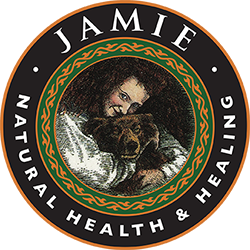Caring For Older Pets-Part One November 29, 2015 18:30
Caring for an Older Pet
It's a privilege to care
To have a friend from birth to death is a rare privilege. To watch a pet go through each life stage, from puppy or kitten to old age, is rich and rewarding. Through them, we also see ourselves change and our own journeys become epics. The bond you have with a pet is lifelong. To experience their old age and to be a part of those changes makes the bond complete, and truly everlasting.
Just like people, ageing animals change. They may not be able to sprint 10 kilometres along the beach, but they give in other ways and still enjoy their life with you. Caring for an older pet is about changing your expectations of them, appreciating the beauty of old age and embracing the opportunity to give back the care, love and utter devotion that they have always bestowed upon you.
Listen and watch. Older pets have ways of telling you about problems they have or may be developing. For example, observe what foods they are finding harder to digest and change their diet accordingly. If you have an older dog, see when they tire and adjust your exercise routine to suit them. A clean cat which suddenly starts urinating in the house may be trying to alert you to kidney disease or dysfunction.
Be clear about alternative care
Western medicine views 'health' as 'the absence of disease'. For this reason, if your pet is aging but not ill, it can be difficult to find professional care that focuses on preventing ailments. Natural therapies, for example acupuncture, massage, naturopathy and aromatherapy, have much to offer. Change of diet is often a simple solution to digestive sensitivity. Acupuncture may prevent muscle weariness, increase energy levels and is excellent for arthritic and allergic pets.
Western science has also pronounced that some conditions (such as arthritis, blindness, heart conditions, kidney or liver disease and some cancers) are a natural consequence of old age. Therefore, nothing can be done, or should be done. However, natural and energetic medicines and therapies-e.g., homoeopathy and energy healing, present real options. Natural or traditional medicines are based on the theory that the body and mind have natural healing powers. Therefore natural therapies concentrate on building or restoring the body's own immune system to recover from disease. If your pet has an age-related condition, get a second opinion from a homoeopath, natural animal therapist or energy healer before you accept that 'nothing can be done'.
Energy healing and energetic medicine go one-step further, which is to look at emotional causes to disease and blocks, and this includes what is happening in your own life. The reason is that our pets naturally take on our life circumstances, including grief and behaviours- don't feel bad about it- it is simply part of the bond you have made and is the beauty of the unique human-pet bond. In addition, depending on the energy healer and the way they work, many physical impairments, age-related problems and diseases have energetic solutions (e.g., DNA work and advanced coding techniques).
There will be a time when your pet is ready to pass on. Listen to them - you'll know when it is time to say goodbye. But don't pass up the opportunity to learn from and care for an older animal. The experience is truly one of unconditional love.
CATS
Cats are very good at regulating their own behaviour. As they age, they sleep even more and stay closer to you and their home. All the advice in this Caring for an Older Pet blog series applies to cats, too, except for the material on exercise.
Grooming is very important for cats. If they are unable to complete such tasks, they may become depressed and lose their pride, dignity and even their will to live. Take over the job for them. The attention will help them maintain interest in themselves and the world.
DOGS
Dogs, too, will regulate their own behaviour, but you need to change your expectations of them. A dog will always try to please you and keep up with you, even if it is not healthy for them to do so. Dogs which are used to being independent, for example those which are not walked on leashes, need you to help them adjust to old age. Their reflexes are not as sharp as they once were and their eye sight may fail. That means they need to walk alongside you. It is important for their own safety.

